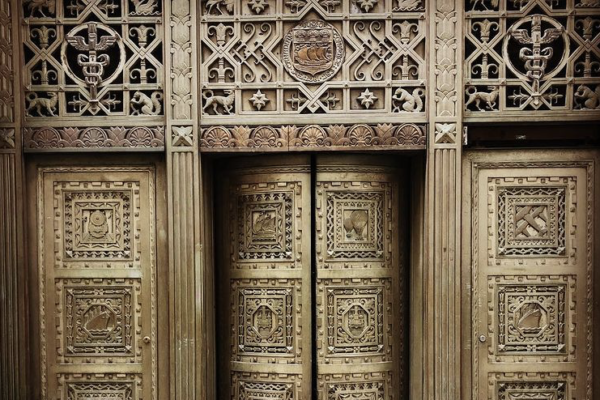Slavic scythe evokes romantic notions of our agrarian past and scenes from Tatranka dances …
All eyes are on the bride, but often it’s the bridesmaids who really steal the show with understated elegance, poise and the freedom to have a good time with far fewer laced-up expectations.
The beach towns to look at when you can’t afford the most popular
Biodiversity in literature
In People and Nature they've published a paper on The rise and fall of biodiversity in literature: A comprehensive quantification of historical changes in the use of vernacular labels for biological taxa in Western creative literature.
Yes, apparently there is not just a decline in actual biodiversity, but also biodiversity in literature:
We show that richness, abundance and Shannon diversity peak in the 1830s, followed by a consistent decline over more than 100 years until the middle of the 20th century.
Among the possible explanations, in part:
We point out though that as we lack information on important driver variables quantifying, for example, the change in the percentage of authors being raised and living in cities or historical changes in the social function of creative literature, we cannot claim a causal relationship, but nevertheless we can observe a historic co-occurrence between decreasing BiL and increasing industrialisation/urbanisation.
And interesting to know:
The author with the highest biodiversity vocabulary within our corpus is the 19th-century English novelist Charlotte Mary Yonge with 903 taxon labels.
Lots of caveats to this study but still quite interesting.
Rolling Stone – The 500 Greatest Songs of All Time
“In 2004, Rolling Stone published its list of the 500 Greatest Songs of All Time. It’s one of the most widely read stories in our history, viewed hundreds of millions of times on this site. But a lot has changed since 2004; back then the iPod was relatively new, and Billie Eilish was three years old. So we’ve decided to give the list a total reboot. To create the new version of the RS 500 we convened a poll of more than 250 artists, musicians, and producers — from Angelique Kidjo to Zedd, Sam Smith to Megan Thee Stallion, M. Ward to Bill Ward — as well as figures from the music industry and leading critics and journalists. They each sent in a ranked list of their top 50 songs, and we tabulated the results. Nearly 4,000 songs received votes. Where the 2004 version of the list was dominated by early rock and soul, the new edition contains more hip-hop, modern country, indie rock, Latin pop, reggae, and R&B. More than half the songs here — 254 in all — weren’t present on the old list, including a third of the Top 100. The result is a more expansive, inclusive vision of pop, music that keeps rewriting its history with every beat…”

